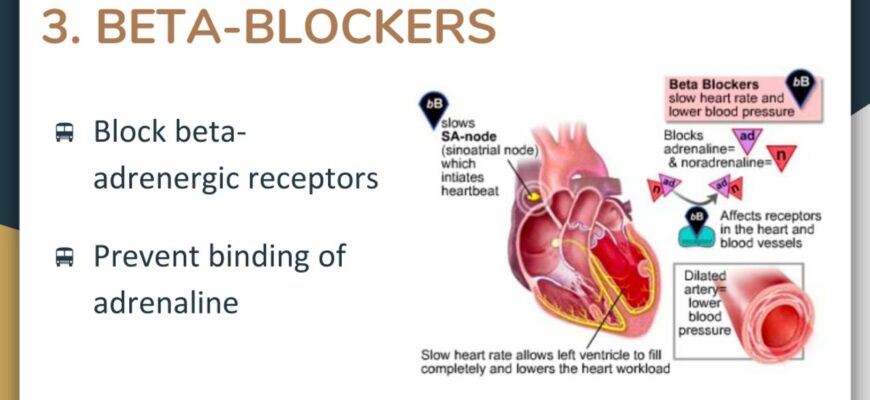For decades, beta-blockers have been a cornerstone of post-heart attack therapy, prescribed almost reflexively to help patients navigate the treacherous waters of recovery. The premise was simple: these drugs reduce the heart`s workload, lowering blood pressure and heart rate, thereby preventing future cardiac events. A sensible approach, one might think, and for a long time, an unquestioned one. However, the world of medicine is nothing if not constantly evolving, and sometimes, even the most established practices come under rigorous scrutiny.
A New Lens on an Old Practice: The REBOOT Study
Enter the REBOOT project, a sprawling international clinical study that has cast a rather significant shadow of doubt on the universal efficacy of beta-blockers. Conducted across 109 clinics in Spain and Italy, involving over 8,500 patients, this was no small-scale inquiry. The findings, presented at the European Society of Cardiology congress in Madrid and published in the prestigious The New England Journal of Medicine, are poised to trigger a substantial re-evaluation of treatment protocols globally.
The core revelation? After nearly four years of observation, the researchers found **no significant difference** in the risk of death, recurrent heart attack, or hospitalization for heart failure between patients who received beta-blockers post-discharge and those who did not. This isn`t just a minor tweak to guidelines; it`s a potential tectonic shift in how we approach cardiac care.
“The assumption that `more is always better` or `what worked then, works now` is increasingly being challenged in modern medicine. This study reminds us that vigilance and continuous re-evaluation are paramount.”
The Unsettling Truth for Women`s Heart Health
While the overall finding itself is significant, a deeper dive into the data revealed an even more unsettling truth, particularly for women. In a critical subgroup analysis, female patients with **preserved heart function** who were prescribed beta-blockers after a heart attack experienced a **higher risk of adverse events** compared to their counterparts who did not take the medication. Curiously, this effect was not observed in men.
This gender disparity is a stark reminder of the long-standing issue in medical research where women`s physiological responses are often overlooked or assumed to mirror men`s. It underscores the urgent need for more gender-specific studies and personalized medicine approaches. For too long, the “one-size-fits-all” approach, often based on male-dominated research, has prevailed, potentially leaving women vulnerable to less effective, or even harmful, treatments.
Implications for Future Clinical Guidelines
The ramifications of the REBOOT study are profound. If beta-blockers were previously prescribed to nearly 80% of post-heart attack patients “out of habit,” as the article suggests, this habitual approach is now unequivocally challenged. The findings imply that in the context of modern cardiac therapies (which have also evolved significantly over the decades), the standalone benefit of beta-blockers for many patients, especially those with preserved left ventricular function, might be negligible, and the potential for side effects, particularly for women, cannot be ignored.
Cardiologists and medical societies worldwide will now face the complex task of revising international clinical recommendations. This isn`t about abandoning beta-blockers entirely; for certain patient groups, they remain indispensable. Instead, it`s about refining who truly benefits, when, and at what dosage, moving towards a more nuanced and **patient-centric approach**. It emphasizes the shift from broad, blanket prescriptions to precise, evidence-based individualization of therapy.
The Ongoing Evolution of Heart Disease Management
This development is yet another testament to the dynamic nature of medical science. What was once considered a gold standard can, with further research and a deeper understanding, be re-evaluated and improved upon. The fight against heart disease is a continuous marathon, not a sprint, constantly demanding innovation and critical self-assessment.
While the focus here is on beta-blockers, it`s worth noting that the broader landscape of heart health research is equally vibrant. For instance, recent studies have also explored intriguing links between hidden bacterial infections and myocardial infarction, hinting at even more complex etiologies for heart conditions. Such ongoing discoveries, whether challenging existing paradigms or uncovering new pathways, collectively push the boundaries of medical knowledge, ultimately aiming for better, safer, and more effective patient care.
The REBOOT study serves as a powerful reminder that even in seemingly settled areas of medicine, asking tough questions and pursuing rigorous research is not just good practice – it`s essential for progress. For the millions affected by heart disease, this continuous quest for knowledge offers the promise of a healthier future.








